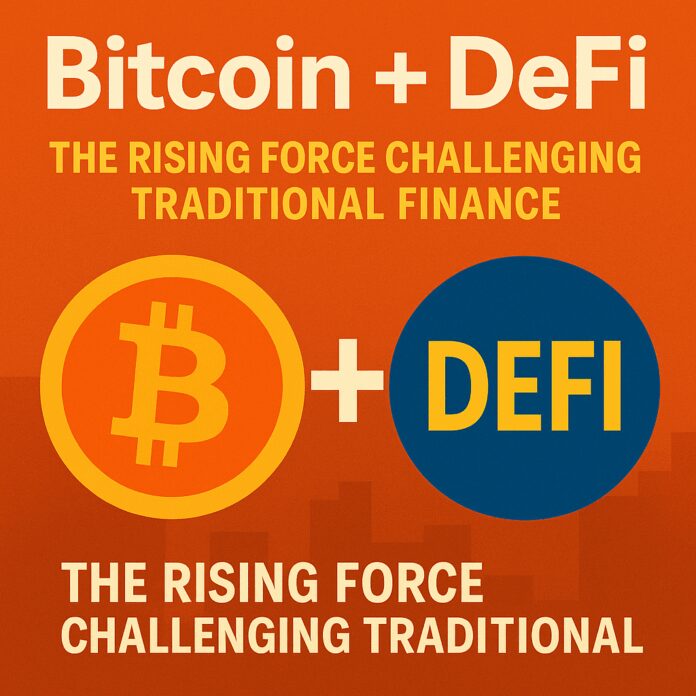At the Bitcoin 2025 conference in Las Vegas, one thing became clear:
Bitcoin is no longer just “digital gold.” It’s becoming the foundation of a new financial system, one that could rival — or replace — traditional finance.
The next wave of innovation is about combining Bitcoin’s security with DeFi’s programmability. The result? A radically open, trustless alternative to legacy banking.
1. Bitcoin Is Evolving
Bitcoin has long been viewed as a store of value. But with emerging protocols and layer-2 solutions, it’s being activated into something more:
- Smart contract layers are being built on top of Bitcoin’s base layer.
- Staking and lending platforms are enabling users to earn while holding BTC.
- Builders are working to make Bitcoin not just passive capital — but productive capital.
This shift could redefine Bitcoin’s role in the broader financial system.
2. Why DeFi Wins Where Banks Can’t
The fundamentals of DeFi offer distinct advantages:
- Self-custody: You control your assets — no intermediaries.
- Transparency: Everything is on-chain and auditable.
- Open access: No gatekeepers. Anyone with an internet connection can participate.
- Speed & efficiency: 24/7 markets, automated execution, no paperwork.
As this model matures, it may offer more flexibility and control than traditional banking ever could.
3. Why This Matters for Investors
- Institutional adoption of Bitcoin is growing — and institutions want yield.
- DeFi tools for BTC unlock new capital efficiency, beyond just holding.
- Financial infrastructure is moving from Wall Street to blockchains — and Bitcoin is being invited in.
The integration of Bitcoin and DeFi could produce a new kind of financial asset class: secure, transparent, and yield-generating.
4. But There Are Still Challenges
Despite the excitement, the road ahead isn’t without risk:
- Security: Smart contracts remain vulnerable to bugs and exploits.
- Usability: Bitcoin-based DeFi is still less mature than Ethereum-based ecosystems.
- Regulation: Jurisdictions are catching up — and DeFi will face increasing scrutiny.
- Liquidity: Bridging BTC into DeFi layers often requires wrapping, which introduces custodial or protocol risk.
The movement is early — but the momentum is real.
5. What It Means for RateEx42 Users
If you’re evaluating tokens, protocols, or trends, consider this:
- Is the project enabling Bitcoin to be used productively, not just held?
- Does it integrate with DeFi infrastructure or build new use cases for BTC?
- Is it secure, transparent, and likely to be compliant long-term?
- Is there real on-chain traction, or just a whitepaper dream?
At RateEx42, we look beyond the hype — and we’ll be watching how this Bitcoin + DeFi trend unfolds.
Final Thought:
Bitcoin started as a protest against the banking system.
Now it’s becoming the foundation of a better one.
The future of finance won’t be built behind closed doors. It will be coded, audited, and open to all.




